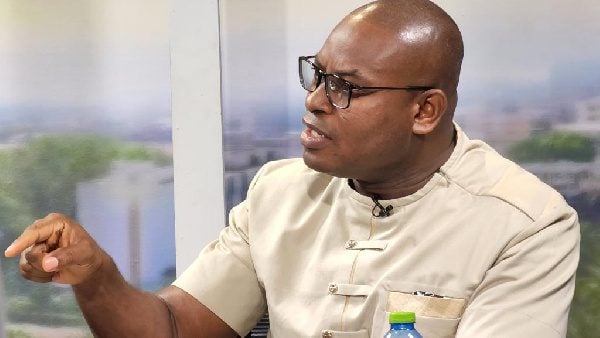The recent directive from the office of Chief of Staff Julius Debrah, annulling appointments and recruitments made after December 7, 2024, has sparked significant controversy and condemnation, particularly from the opposition New Patriotic Party (NPP). The directive, issued on February 11, 2025, claims these appointments and recruitments were not in line with established good governance practices, raising questions about their legitimacy and the motivations behind their revocation. Richard Ahiagbah, the NPP’s National Communications Director, has been particularly vocal in his criticism, accusing the government of partisan bias and prioritizing the interests of its own members, the National Democratic Congress (NDC), over the welfare of the broader Ghanaian populace.
Ahiagbah’s core argument hinges on the assertion that President Mahama’s actions demonstrate a clear preference for NDC loyalists, contrasting this with what he portrays as the more inclusive approach of previous administrations, including that of former President Akufo-Addo. He suggests that this directive effectively disregards the qualifications and merit of those affected, reducing their employment opportunities to mere political patronage. This, he argues, represents a betrayal of the public trust and a dangerous precedent for future governance in Ghana. By prioritizing party affiliation over merit, Ahiagbah contends, the Mahama administration is undermining the principles of fairness, equality, and opportunity that should underpin a democratic society.
The revocation of these appointments and recruitments carries far-reaching consequences, extending beyond the immediate impact on the individuals involved. Ahiagbah highlights the ripple effect of this decision, impacting families, friends, and communities who rely on the income and stability provided by these employment opportunities. He paints a picture of widespread hardship and resentment, predicting that the perceived “partisan cruelty” of this action will leave a lasting scar on the affected individuals and their social networks. This resentment, he suggests, will translate into a political liability for the NDC, as those affected, along with their extended circles, are unlikely to forget or forgive this perceived injustice.
Ahiagbah’s critique further delves into the potential long-term damage to Ghana’s governance and social fabric. He argues that such blatant politicization of employment opportunities erodes public trust in institutions, fosters division and resentment, and ultimately weakens the foundation of a democratic society. By prioritizing party loyalty over merit, the government risks creating a system where competence and qualifications are secondary to political connections, thereby discouraging qualified individuals from pursuing public service and hindering the overall development of the nation. This, he warns, could lead to a decline in the quality of governance and a further entrenchment of partisan politics.
The controversy surrounding these revoked appointments also raises important questions about transparency and accountability in government hiring practices. While the government cites deviations from established procedures as justification for its actions, Ahiagbah’s critique implicitly challenges the clarity and consistency of these procedures, suggesting that they may be susceptible to manipulation for political ends. The demand for a comprehensive report on the annulments, while seemingly aimed at ensuring transparency, could also be interpreted as a move to legitimize a predetermined outcome. The lack of specific details regarding the alleged breaches of procedure further fuels suspicions of a politically motivated purge, rather than a genuine effort to uphold good governance principles.
In essence, Ahiagbah’s response to the government’s directive frames the issue not merely as a matter of administrative procedure but as a fundamental challenge to democratic values and the very fabric of Ghanaian society. By focusing on the perceived “partisan cruelty” of the decision and its broader implications, he seeks to mobilize public opinion against the Mahama administration and portray the NPP as the defender of fairness, opportunity, and good governance. The ongoing debate over these revoked appointments serves as a microcosm of the larger political and social tensions within Ghana, highlighting the challenges of balancing competing interests and upholding the principles of a democratic society.














